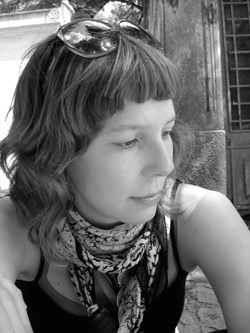|
One of my favorite books about the value of storytelling is Bruno Bettelheim's The Uses of Enchantment. In this book, Bettelheim, a writer and child psychologist, examines the role of fairy tales in children's moral and psychological development. The fairy tale, he says, educates the child about conflict, anxieties, hardship, all the messy trouble of living, and without moralizing, gives the child a safe space, a dream space, in which to work out these troubles, emerging from the story perhaps a little wiser. The child reader takes a vicarious journey through the woods with Hansel and Gretel, following their trail of breadcrumbs, as unsure as they are where the path through the forest will lead.
This book was first given to me by one of my own writing mentors, Jim McPherson, at the University of Iowa. He meant to draw an analogy, I believe, between the uses of fairy tale enchantment and the uses of any good fiction's enchantment. If Little Red Riding Hood is our companion and analog when we are children, so are Anna Karenina, Billy Pilgrim, Clarissa Dalloway when we read as adults, and so are our own invented characters when we write fiction. As readers, we journey with Anna through the impossible morass of her affair, with Billy Pilgrim as he grapples with the tragedies of war. As writers, we loose our characters in the wilderness, set wolves on their heels, confound their paths, and watch, mesmerized, to see how they will go, whether they will come out on the other side. Often, we see them behave in ways that raise questions but offer no answers. In fiction, we suspend judgment. We relish ambiguities.
I believe in storytelling as a way to map and explore the ambiguities of human experience, and it is this belief that motivates me as a fiction writer. Stories have given me a language to express the contradictions in my own experience, and because writing them has been an often challenging exercise in sympathy and compassion, I have come to see the practice of storytelling as a moral imperative. But the morality is in the practice, not in the story itself. Fiction is no place for sermons, for conclusive answers. Whether we're reading or writing them, the best fiction gives us a woods to get lost in, and if at the end, we have come to no conclusions, if we are only left with more questions, the questions themselves are something like a map, and we emerge from this woods a little better able to find our way.
|


